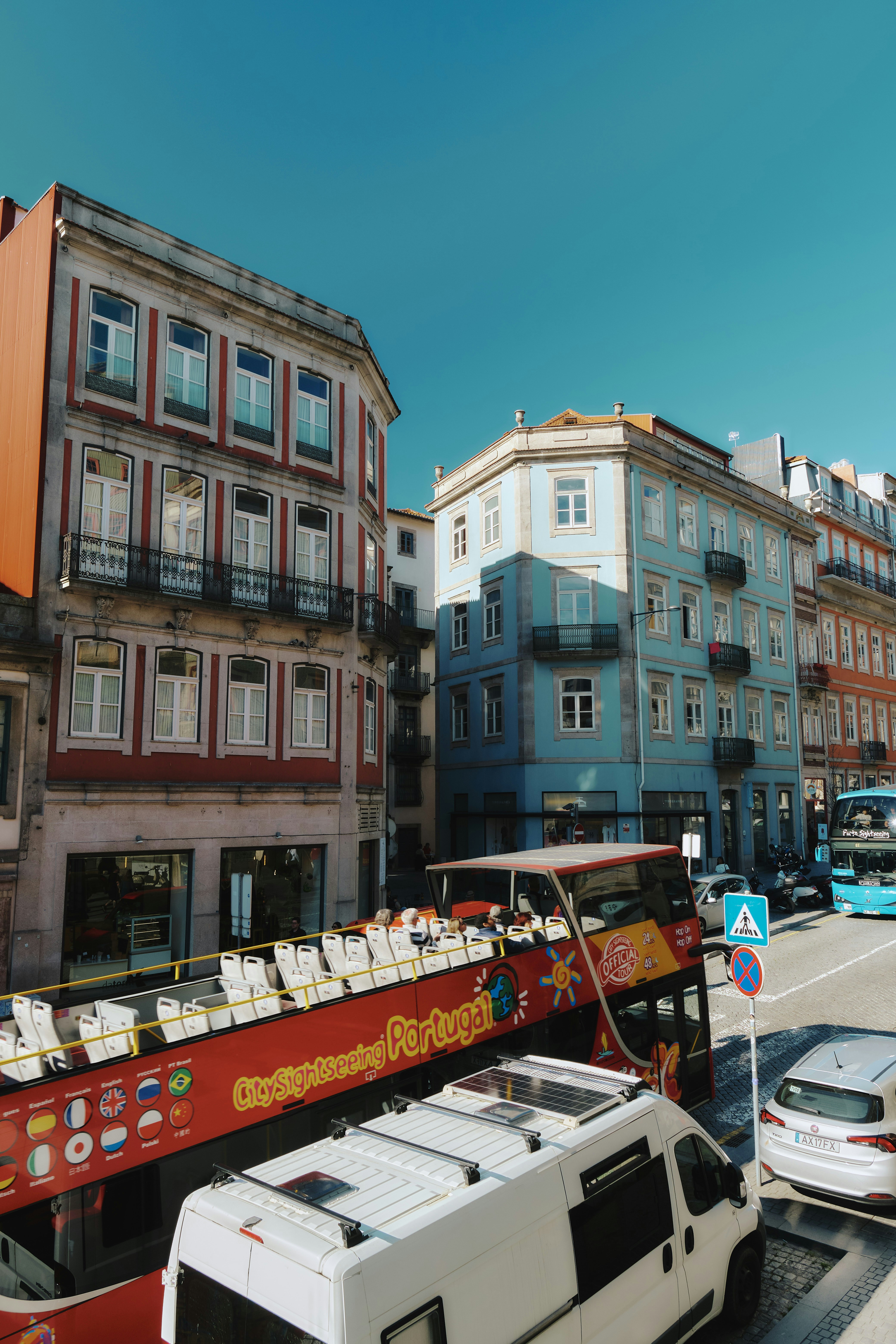Table of Contents
Introduction
Portugal is a captivating destination with a rich cultural heritage, stunning landscapes, and a diverse climate that offers something unique in every season. From the sun-drenched beaches of the Algarve to the vibrant streets of Lisbon and the lush vineyards of the Douro Valley, Portugal is a country that caters to all types of travelers. Whether you’re a nature enthusiast, a wine lover, a history buff, or a beachgoer, Portugal has something to offer year-round. This guide will help you discover the best time to visit Portugal, tailored to your interests and activities, while providing detailed information about the weather throughout the year.
Spring (March to May)
Overview
Spring in Portugal is a delightful season, marked by mild temperatures, blooming flowers, and fewer tourists compared to the summer months. The weather is generally mild, making it ideal for outdoor activities and sightseeing. The average temperatures range from 10°C (50°F) at night to 20°C (68°F) during the day. Rainfall decreases significantly as the season progresses, making way for longer, sunnier days.
Monthly Breakdown
- March: Average temperatures range from 9°C (48°F) to 17°C (63°F). Rainfall begins to decrease, and the days start getting longer.
- April: Temperatures range from 11°C (52°F) to 19°C (66°F). Flowers start to bloom, and the countryside becomes lush and green.
- May: Temperatures range from 13°C (55°F) to 22°C (72°F). This is one of the best times to visit Portugal for pleasant weather and fewer crowds.
Best For
- Nature Lovers: Spring is the perfect time to explore Portugal’s natural beauty. The countryside is lush and green, and wildflowers are in full bloom. The Peneda-Gerês National Park and the Alentejo region are particularly stunning during this season.
- Wine Enthusiasts: Visit the Douro Valley, where the vineyards come to life. Spring is an excellent time for wine tasting tours without the summer heat.
- City Explorers: The mild weather makes it ideal for sightseeing in cities like Lisbon, Porto, and Sintra. Enjoy outdoor cafes, historic sites, and vibrant street life.
Events and Festivals
- Lisbon Fish and Flavors Festival (April): A gastronomic event celebrating Portugal’s seafood cuisine.
- Festa da Primavera (April): A spring festival in Madeira with parades, flower exhibitions, and music.
Insider Tips
- What to Pack: Light layers, a light jacket for cooler evenings, and comfortable walking shoes.
- Maximizing Your Visit: Take advantage of the fewer crowds to visit popular attractions. Early spring can still be rainy, so plan some indoor activities as well.
Summer (June to August)
Overview
Summer in Portugal is characterized by hot, dry weather, especially in the southern regions. Average temperatures range from 18°C (64°F) at night to 30°C (86°F) during the day, making it the peak season for tourism. Coastal areas enjoy a refreshing Atlantic breeze, while inland regions can be quite warm. Summer is the best time for beach activities, festivals, and exploring coastal towns.
Monthly Breakdown
- June: Average temperatures range from 16°C (61°F) to 26°C (79°F). The weather is warm but not too hot, making it perfect for outdoor activities.
- July: Temperatures range from 18°C (64°F) to 29°C (84°F). This is one of the hottest months, ideal for beach holidays and water sports.
- August: Temperatures range from 19°C (66°F) to 30°C (86°F). August is peak tourist season, with bustling beaches and vibrant nightlife.
Best For
- Beach Enthusiasts: The Algarve, with its stunning beaches and clear blue waters, is a summer paradise. Enjoy sunbathing, swimming, and water sports.
- Festival Goers: Summer is festival season in Portugal, with numerous music, cultural, and food festivals happening across the country.
- Nightlife Seekers: Cities like Lisbon and Porto have a vibrant nightlife, with rooftop bars, clubs, and beach parties.
Events and Festivals
- NOS Alive (July): One of Europe’s biggest music festivals, held in Lisbon.
- Festas de Lisboa (June): A month-long celebration with street parties, parades, and traditional music.
- Medieval Fair of Óbidos (July-August): A historical fair with medieval reenactments, food, and crafts.
Insider Tips
- What to Pack: Light, breathable clothing, swimsuits, sunscreen, a hat, and sunglasses.
- Precautions: Stay hydrated, avoid the midday sun, and use plenty of sunscreen. Book accommodations and attractions in advance as this is the busiest season.
Autumn (September to November)
Overview
Autumn in Portugal is a pleasant season with warm days and cool nights. Average temperatures range from 15°C (59°F) at night to 25°C (77°F) during the day. The crowds thin out after the summer peak, making it a great time to visit popular destinations. The weather remains mild, and the natural scenery is beautiful, with autumn colors adding to the charm.
Monthly Breakdown
- September: Average temperatures range from 18°C (64°F) to 28°C (82°F). The weather is still warm, making it ideal for beach activities.
- October: Temperatures range from 14°C (57°F) to 23°C (73°F). The weather starts to cool down, perfect for outdoor exploration.
- November: Temperatures range from 11°C (52°F) to 19°C (66°F). The weather is cooler, and rainfall starts to increase towards the end of the month.
Best For
- Hiking and Outdoor Activities: The cooler temperatures are perfect for hiking and exploring nature trails. The Douro Valley and Sintra-Cascais Natural Park are excellent choices.
- Cultural Experiences: Autumn is harvest season in Portugal, making it an ideal time to visit vineyards and participate in wine festivals. It’s also a great time to explore historic sites and cultural landmarks without the summer crowds.
- Photography Enthusiasts: The golden autumn light and changing foliage offer fantastic photography opportunities.
Events and Festivals
- Grape Harvest Festivals (September): Celebrate the grape harvest in the Douro Valley with wine tastings and traditional festivities.
- Feira Nacional de Gastronomia (October): A national gastronomy fair in Santarém showcasing Portuguese cuisine.
- Lisbon Marathon (October): Join or watch this scenic marathon through the streets of Lisbon.
Insider Tips
- What to Pack: Layered clothing, a light jacket, and comfortable shoes. Include a scarf or shawl for cooler evenings.
- Maximizing Your Visit: Autumn is a great time to take scenic drives through the countryside and enjoy local markets. Take advantage of the off-peak season to explore popular sites without the crowds.
Winter (December to February)
Overview
Winter in Portugal is mild compared to other European countries, with average temperatures ranging from 8°C (46°F) at night to 15°C (59°F) during the day. Coastal areas remain relatively warm, while inland and northern regions can be cooler. This is the off-peak season, offering a quieter and more affordable travel experience. Winter is a great time to explore cities, enjoy cultural events, and experience the festive season in Portugal.
Monthly Breakdown
- December: Average temperatures range from 9°C (48°F) to 15°C (59°F). The festive season brings Christmas markets and holiday decorations.
- January: Temperatures range from 8°C (46°F) to 14°C (57°F). This is the coolest month, with occasional rain.
- February: Temperatures range from 9°C (48°F) to 15°C (59°F). The weather starts to improve towards the end of the month, with more sunny days.
Best For
- City Breaks: Enjoy the festive atmosphere in cities like Lisbon, Porto, and Faro. Winter is perfect for exploring museums, historic sites, and cozy cafes.
- Cultural Enthusiasts: Winter is a great time to experience Portuguese culture through music, dance, and traditional festivals.
- Mild Winter Getaways: The Algarve remains relatively warm, making it a good escape from colder climates. Enjoy walking along the beach, golfing, and exploring the region’s natural beauty.
Events and Festivals
- Christmas Markets (December): Festive markets in cities like Lisbon, Porto, and Faro, offering local crafts, foods, and holiday decorations.
- New Year’s Eve Celebrations: Fireworks and festivities in major cities, with public concerts and street parties.
- Carnival (February): Vibrant parades and celebrations in towns like Loulé and Torres Vedras.
Insider Tips
- What to Pack: Layers, a waterproof jacket, and comfortable walking shoes. Pack warmer clothing for inland and northern regions.
- Maximizing Your Visit: Winter is the perfect time to enjoy indoor attractions like museums and palaces. Take advantage of lower accommodation rates and fewer tourists to explore at a leisurely pace.
Year-Round Activities
Culinary Experiences
Portugal is renowned for its rich culinary traditions. No matter the season, you can indulge in a variety of food and wine experiences:
- Port Wine Tours: Visit the Douro Valley or Porto to sample world-famous port wine.
- Seafood Feasts: Enjoy fresh seafood dishes like bacalhau (salt cod), sardines, and octopus in coastal towns.
- Pastries: Savor traditional Portuguese pastries like pastel de nata and queijadas.
Historical and Cultural Sites
Portugal’s history is rich and diverse, with plenty of sites to explore:
- Belém Tower and Jerónimos Monastery (Lisbon): These UNESCO World Heritage sites offer a glimpse into Portugal’s Age of Discoveries.
- Palácio Nacional de Sintra (Sintra): Explore the beautiful palaces and gardens in Sintra.
- Convento de Cristo (Tomar): Visit the historic headquarters of the Knights Templar.
Outdoor Adventures
For adventure enthusiasts, Portugal offers a range of activities throughout the year:
- Surfing: Portugal is a top destination for surfing, with spots like Nazaré, Peniche, and Ericeira offering great waves year-round.
- Hiking and Biking: Explore the scenic trails in the Azores, Madeira, and mainland Portugal.
- Golf: With numerous world-class golf courses, especially in the Algarve, Portugal is a golfer’s paradise.
Beach Activities
Portugal’s coastline is perfect for beach activities:
- Algarve Beaches: Famous for their golden sands and crystal-clear waters, the Algarve’s beaches are ideal for relaxation and water sports.
- Costa Vicentina: This rugged coastline offers beautiful, less crowded beaches, perfect for surfing and hiking.
- Madeira: Known for its volcanic black sand beaches and natural pools.
Festivals and Events
No matter when you visit, there’s always a festival or event happening in Portugal:
- Feast of St. Anthony (June): Celebrated in Lisbon with parades, music, and sardine grilling.
- Algarve International Film Festival (October): A major cultural event in the Algarve region.
- Festival de São João (June): Porto’s biggest festival, featuring street parties, fireworks, and traditional music.
Conclusion
Portugal is a year-round destination, offering diverse experiences in every season. Whether you prefer the bustling summer beaches, the colorful spring landscapes, the serene autumn vineyards, or the cozy winter city breaks, there’s always a perfect time to visit Portugal. By understanding the seasonal highlights and planning your trip accordingly, you can make the most of your Portuguese adventure.
Plan your visit to Portugal and immerse yourself in its rich culture, stunning scenery, and warm hospitality. No matter when you choose to go, Portugal promises an unforgettable travel experience.
For more detailed travel insights and planning tips, stay tuned to our blog. Portugal’s charm and beauty are just a trip away!




















